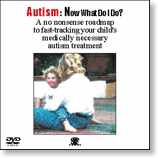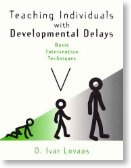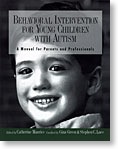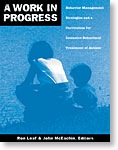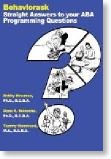early intervention
Speech and Language Pathologists are the first responders for autism
27/07/12 11:17 Filed in: autism | Asperger's Syndrome

SLPs are often the first professionals to see a child with autism because the child is not developing language in a typically developing fashion. SLPs often recognize autism immediately due to the symptoms of the disorder that include echolalia, delayed echolalia, lack of joint attention and general lack of communication. Due to their expertise, SLPs can be crucially important in getting parents to act quickly on early intervention. However, SLPs frequently find themselves in a quandary: they know something is amiss but they are not diagnosticians. Unless they are credentialed in diagnosing childhood disorders, they are not allowed to render a diagnosis of autism even when red lights are flashing.
I have seen this situation all too often. It’s so common that after the diagnosis, parents actually complain about the fact that no one – including the SLP who first worked with their child – ever told them that their child may be afflicted with autism. I’ve heard many parents say, "if I could only get that lost year back."
I would like to strongly encourage SLPs to let the parents know if there are greater concerns about the child's language development and suggest that the child may benefit from an intensive treatment program. If the SLP is allowed to use the "autism" word, they should! If that’s impermissible, then they should encourage the parent to visit a local developmental pediatrician who is known to diagnose autism quickly, and accurately. In order to find that pediatrician, I would contact the local Families for Early Autism Treatment (FEAT) or ABA parent group in the area, and ask for the name of the best diagnostician in town.
It is one thing to have this information and quite another to communicate the information in an effective manner. To that end, I would suggest the following words:
"I am very concerned about Johnny, and Dr. Jones is a pediatrician who will very quickly be able to tell you if you need to have your child in an intensive treatment program for this language delay. Dr. Jones will have excellent advice about what we need to do to help Johnny. Obviously I can work on your child's language and communication skills, but I want to make sure that we give your child the best start in life and I want to make sure that he reaches his full potential. The way to do this is through an assessment by Dr. Jones and possibly an intensive treatment program.”
I would also source the name of the best local psychologist who can diagnose the child. The local FEAT or ABA parent group should have the name of this professional. In addition, a good SLP should find out who in the area is a Board Certified Behavior Analyst (BCBA) who provides Intensive Behavioral Treatment (IBT) for autism. Armed with this knowledge, the SLP’s next step is to ask the parent group how parents in the area are funding the treatment. Depending upon jurisdiction, there may be laws protecting the child’s rights to treatment. The local FEAT type group will have this information.
Here’s the list of the steps an SLP can take when he or she is working with a child they suspect may have undiagnosed autism:
1) Find the professionals in your area who a) can provide a quick and accurate diagnosis e.g., pediatricians & psychologists, and b) are excellent practitioners in intensive behavioral treatment (e.g. BCBA)
2) Parent Group: a) find the parent group in your area that supports ABA (FEAT or FEAT-like organizations), and b) find out where and when they meet.
3) Sleuth out the funding agencies or insurance plans that pay for the treatment and find out how parents can best access these funds.
4) Create a New Parent Packet for information to give to these parents (or use the one that the local FEAT group provides)
Here are some tips to think about when an SLP is delivering the message:
- Stay on topic
- Don’t let immigrant status, poverty or lack of resources get in the way of helping these families access behavioral treatment programs.
If these folks have limited financial resources and are on a services wait list for several months, I would strongly recommend that they contact the local ABA parent group, which is free. There they will meet other parents who may help them find a way to get an earlier diagnosis.
- Ignore SLP colleagues who claim that everyone needs to take their own journey to come to the realization that their child has autism.
In short, you as an SLP have the power – and 1st responder insight – to speed up the diagnostic process considerably. Use your power for good!
An early diagnosis with no access to treatment is immoral
13/12/11 11:58 Filed in: autism | Asperger's Syndrome
I watched a lecture today given by Dr. Ami Klin, an academic with expertise in autism. For the first time in many months, I thought here’s a guy who really understands. The lecture is 22 minutes long, and well worth the time.
Dr. Klin discusses research which has resulted in the ability to identify autism reliably at six months of age, prior to the age where behaviors characteristic of autism typically begin to appear. Where he garnered my respect was when he said that an early diagnosis is useless if parents do not have access to effective treatment for their children. This seems like an obvious point but it is often overlooked by many professionals and particularly policy makers.
We parents have been saying this for the last 20 years! Put simply, early diagnosis without access to treatment is immoral. Substitute autism with leukemia and everyone understands that a diagnosis without access to treatment is cruelty. Finally, we have an academic who makes it very clear that autism treatment and early diagnosis combine as a moral issue. When speaking about early diagnosis, Klin says, “But this [early diagnosis] would be immoral if we didn’t also have an infrastructure for intervention, for treatment.”
Dr. Klin discusses research which has resulted in the ability to identify autism reliably at six months of age, prior to the age where behaviors characteristic of autism typically begin to appear. Where he garnered my respect was when he said that an early diagnosis is useless if parents do not have access to effective treatment for their children. This seems like an obvious point but it is often overlooked by many professionals and particularly policy makers.
We parents have been saying this for the last 20 years! Put simply, early diagnosis without access to treatment is immoral. Substitute autism with leukemia and everyone understands that a diagnosis without access to treatment is cruelty. Finally, we have an academic who makes it very clear that autism treatment and early diagnosis combine as a moral issue. When speaking about early diagnosis, Klin says, “But this [early diagnosis] would be immoral if we didn’t also have an infrastructure for intervention, for treatment.”
Thank you, Dr. Klin, for boldly speaking the obvious and advocating for access to necessary autism treatment. Hopefully, we will hear more from Dr. Klin in the future!
Overdue: A Specialty in Autism Treatment
03/10/11 09:36 Filed in: autism | Asperger's Syndrome
When a child is first diagnosed, and parents are told early intervention is the key, the frantic search for early intervention begins! This fuzzy terminology itself is problematic because it is not “early intervention” that is key; rather, it is “early intensive behavioral intervention” that is the answer. The savvy parents figure this out within the first few months, if not earlier. Read more...





